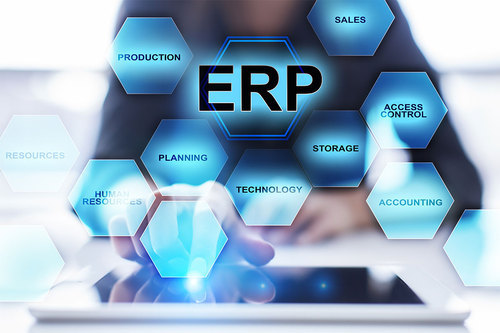At Software Advice, we preach the good word of software and how it can benefit businesses. Nevertheless, in regards to the complex world of enterprise resource planning(ERP) software and the top ERP benefits users may expect to realize, it can be a tougher market.
There is one common refrain we hear from buyers using disparate systems to run their procedures: "Why is the ERP system better than what we're using today?"
1. Utilize Business Data to Improve and Strengthen Security
Modern ERP systems provide innovative user-permission settings. No more unsecured Excel sheets and Google files for your financial or stock needs.
ERP software is much more secure and robust for all these purposes. Users will have the ability to get only what they need to from the computer system.
However, in the rare occasion vendors discover security exploits in their applications, they could typically patch it immediately. Vendors are also able to rapidly share the update with all users automatically.
2. Use this Community Knowledge and Service
Hundreds of thousands of companies utilize ERP software and have workers who are actively involved with their platform's online knowledge community. If you experience an issue or problem, chances are somebody else has experienced it, too.All you need to do is conduct a simple search in your platform's knowledge foundation for resolutions of less severe problems. These forums are fairly busy, and you generally get responses from other users as well.
Employ Better Data to Make Better Business Decisions Utilizing disparate, badly integrated business software systems can result in messy, non-standardized data. This increases the odds of year-over-year comparisons being incorrect, making the procedure harder and time-consuming. This becomes a serious detriment to accurate forecasting.
A contemporary ERP system like corporate munim come integrated with all the necessary applications. Meaning, your data is standardized and the resources to see year-over-year comparisons and forecasts are constructed in. These are usually presented in an easy-to-read dashboard format.
4. Stay on Top of Regulations
You no longer need to worry about political barriers making your workers' jobs harder. Most ERP systems like corporate munim are equipped to ease regulatory compliance needed for business processes such as financial accounting, information security and product traceability.Publicly traded firms need to ensure their financial documents are 100-percent accurate. ERP software helps keep everything in line through Generally Accepted Accounting Principles (GAAP).
Little regional food makers may benefit from the item traceability tools in a modern ERP system. These ensure that companies are able to trace any cases of contamination or improper handling back to the source in their production plant.
5. Give Employees More Ability to Be Revenue Generators
Inefficient procedures and decentralized data mean greater labour costs for companies. These may be especially detrimental for small to midsize businesses (SMBs) who have limited resources.ERP systems can streamline and automate daily processes, freeing up your workers' time to do things which actually generate revenue. For instance, the software can automatically tie sales orders into the accounting system, or run reports without the need for complex spreadsheets.
Based on Gartner's"Postmodern ERP Life Cycle: How to Start the Strategize and Plan Phase" (report available to Gartner clients), companies should treat ERP as a tech strategy. It can effectively automate and connect operational and administrative capacities like finance, HR, purchasing, distribution and manufacturing to help achieve business flexibility and agility.
6. Make Mobile Accessible to Bring Your Business With You
Most ERP vendors like Corporate Munim are providing native software on Android, iOS and Windows smart apparatus for ease of use. These applications typically offer upgrades in real time together with critical business KPIs, including:One of those predictions in Gartner's"Forecast Overview: ERP Software, Worldwide, 2016" report (accessible to Gartner customers ) is that 60 percent of SMBs will be picking ERP in the cloud by 2020. This is only going to boost the cell accessibility for consumers -- a tendency that has increased more as increasingly more tech-savvy professionals enter the marketplace.
This generation prefers a connected network of software, which can be easily managed on a tablet or better, their phones. They will automatically prefer ERP vendors who offer integrated programs with other software so they can easily change between works within seconds.
7. Pick from a Number of Software Options
There are plenty of fish in the ERP sea, from giants like SAP and Oracle down to niche vendors that cater to a couple of customers in a specific industry. A surplus of gamers in the market is great for clients --and every seller has its own distinct advantages and target industries.No matter your requirements and budget are, there's an ERP vendor out there that will suit your business like a glove. You can begin with the popular ones, recorded in the FrontRunners for ERP applications to see the qualities and capabilities of some of the best rated solutions on the market.
Conclusion and Next Steps
Now that you've seen the benefits of ERP applications, it is time you switched up from the guide methods to automatic processes. Here Is What you can do next:



Comments
Post a Comment